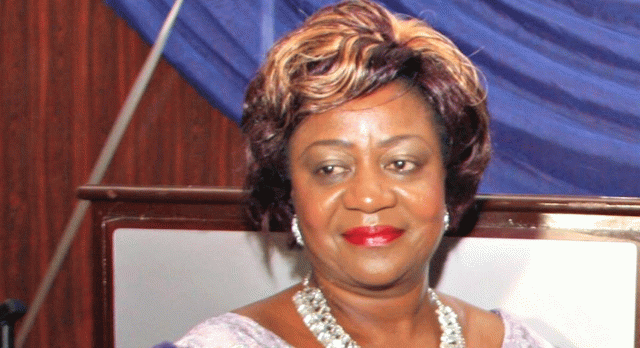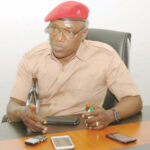As expected, President Muhammadu Buhari’s nomination of his Special Assistant on Social Media, Mrs. Lauretta Onochie as a National Commissioner of the Independent National Electoral Commission (INEC) from Delta state, has met with a storm of unfavourable comments across the spectrum of public opinion in the country.
Mrs Onochie was nominated by the president along with Professor Muhammad Sani Kallah (Katsina), Professor Kunle Cornelius Ajayi (Ekiti) and Saidu Babura Ahmad (Resident Electoral Commissioner, REC Jigawa). Of all these nominations, it is only that of Mrs Onochie that has singularly raised issues.
Expectedly, when the nomination was announced at the Senate, the protests came mainly from Senators from the opposition People Democratic Party (PDP)
But there have also been non-partisan opposition right across the country.
The animus against her nomination is not due to her lack of competence for the job at INEC. It is because her task on behalf of the president often sees her defending or taking on the president’s many critics in the social media, which has earned her a legion of critics.
Opposition to Mrs Onochie’s nomination also stems from the fact that she was, until very recently, a card-carrying member of the ruling the All Progressive Congress (APC). In this regard, it is quite clear that the timing of her resignation from the party was done to conveniently remove any constitutional constraints to her nomination.
It is also a fact that as the president’s special assistant, Mrs Onochie was unabashedly partisan beyond the pale of the normal expectations of the job. In the course of this, she has ruffled a lot of feathers and stepped, rather harshly, on many toes, which marked her out clearly as someone who cannot be expected to bring objectivity and non-partisanship to sensitive government position requiring her to do so.
It is on this score that the opposition to her nomination as an INEC commissioner is anchored.
Although there will always be allegations of its bias towards one party or the other, recent elections conducted by INEC have served to dispel those allegations. To its credit, despite criticisms directed at it in this regard, INEC has striven to give us reason to believe that such criticisms are the normal fare of outlandish partisan politicking, which do not represent the reality.
To nominate Mrs Onochie under such circumstances and in the light of her well-known antecedents as a no-holds-barred political partisan of the president, to the position of a national commissioner of an institution like INEC, undoubtedly raises moral questions, which the president must consider. Among the germane issues, which President Buhari should consider is the fact that Mrs Onochie’s nomination will open INEC to the accusation that she is being placed to be groomed to enable her to play a strategic role in favour of the ruling party in time for the next round of elections in 2023. This is certainly not an issue to trifle with, which must be given much consideration by the president.
Against this background, Mrs Onochie’s nomination, no matter the explanation provided, will find precious few believers.

 Join Daily Trust WhatsApp Community For Quick Access To News and Happenings Around You.
Join Daily Trust WhatsApp Community For Quick Access To News and Happenings Around You.


